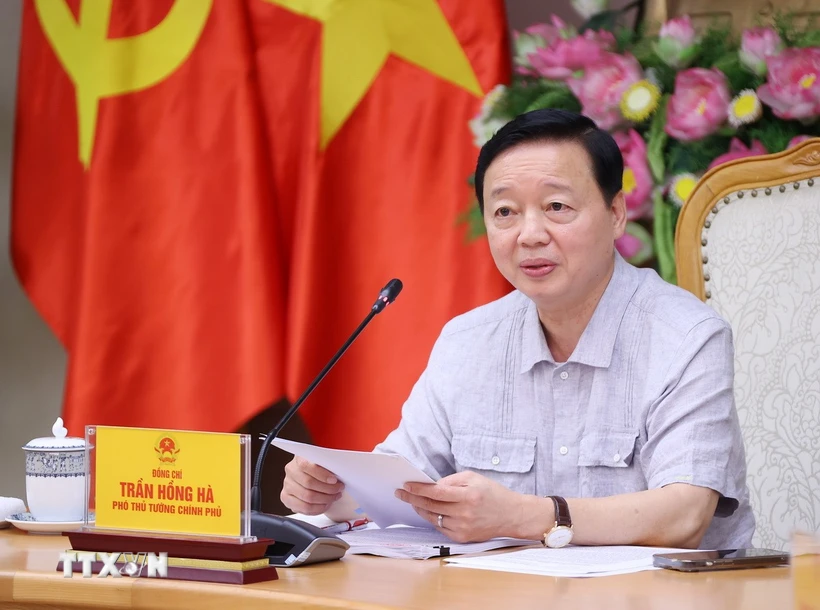
Deputy Prime Minister Tran Hong Ha gives a directive speech. (Photo: Van Diep/VNA)
Zalo Facebook Twitter Print Copy link
On the morning of May 28, at the Government Headquarters, Deputy Prime Minister Tran Hong Ha chaired a meeting with ministries and branches on the inter-sectoral coordination mechanism in sustainable development of the marine economy .
Inter-sectoral, inter-regional and inter-national coordination mechanisms
Deputy Prime Minister Tran Hong Ha emphasized that in order to sustainably develop the marine economy, the prerequisite is to build and effectively operate an inter-sectoral, inter-regional and inter-national coordination mechanism. This is the foundation for comprehensive management and exploitation of resources, resolving conflicts and selecting optimal solutions among marine development sectors.
"The most important thing is to clearly identify the focus, which are inter-sectoral, inter-regional, inter-local, and even inter-national issues, otherwise it is easy to fall into a situation where "everything must be coordinated," leading to overload, causing technical and financial obstacles, affecting development," the Deputy Prime Minister said, emphasizing that "the coordination mechanism must be based on the principle of decentralization, only retaining issues that really need coordination at the central level, the rest must be assigned to localities."
According to the Deputy Prime Minister, strategy and planning are two important tools in inter-sectoral coordination. However, to solve the problem of multi-sectoral and multi-sector development in a sea area, where there are potential conflicts between maritime, wind power, fisheries, tourism , oil and gas... and even international factors, it is necessary to add other effective coordination tools.
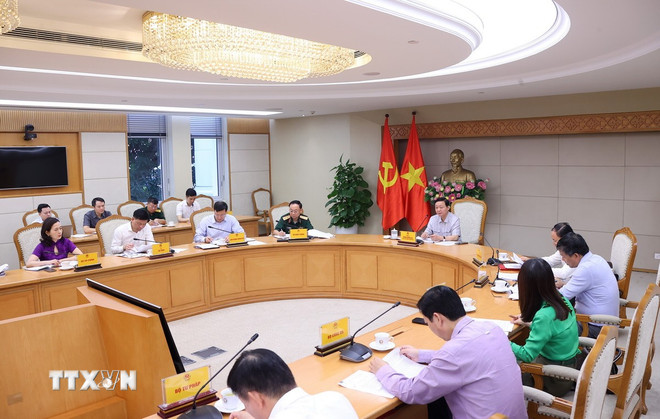
Deputy Prime Minister Tran Hong Ha chaired a meeting on inter-sectoral coordination mechanisms in sustainable development of the marine economy. (Photo: Van Diep/VNA)
In that spirit, the Deputy Prime Minister requested the Ministry of Agriculture and Environment to preside over and coordinate with relevant ministries and sectors to research and propose mechanisms to resolve development conflicts, selecting options based on the main criteria of environmental and economic efficiency and job creation capacity...; research and develop a toolkit to support analysis and decision-making for inter-sectoral conflict situations; and a mechanism to coordinate the investigation and survey of marine environmental resources to serve the implementation of strategies and planning for marine economic development.
The Ministry of Agriculture and Environment urgently reviews and completes the regulations, determines the scope of activities of the National Steering Committee on the implementation of the Strategy for sustainable development of the marine economy, focusing on resolving conflicts of an inter-provincial or inter-regional nature or related to key national projects, or issues at the international level such as implementing international agreements, marine scientific research, handling environmental incidents with cross-border elements or beyond the capacity of localities...; proposes a financial mechanism for basic investigation activities and the construction of national and local databases on marine environmental resources.
Improving the efficiency of sustainable development of marine economy
Previously, according to a report by the Ministry of Agriculture and Environment, after 7 years of implementing the Strategy for sustainable development of Vietnam's marine economy to 2030, with a vision to 2045 (Strategy), key marine economic sectors such as marine tourism and services, maritime economy, oil and gas exploitation, fisheries, renewable energy and a number of new marine economic sectors have had positive developments.
However, the implementation of specific tasks according to the Strategy is still slow compared to the set plan.
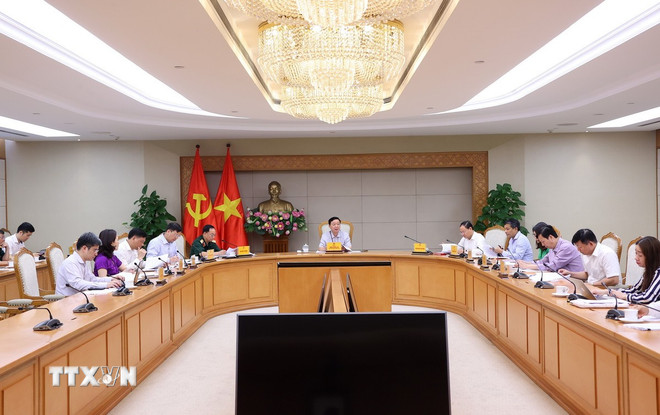
Deputy Prime Minister Tran Hong Ha chaired the meeting. (Photo: Van Diep/VNA)
Of the 169 projects, plans and tasks assigned by the Government to ministries, sectors and 28 coastal provinces and cities, only 35 are currently being implemented, equivalent to 20.7%. This significantly affects the progress and overall goals of the National Marine Strategy.
One of the main reasons pointed out is the lack of a strong enough inter-sectoral coordination mechanism to monitor, update progress, remove obstacles and create connections between ongoing projects and schemes.
Due to the large volume of projects and the participation of many ministries and sectors, but the lack of an inter-sectoral coordination mechanism, updating the progress and implementation status of projects is still inadequate and limited.
Ministries, branches and localities face difficulties, obstacles, lack of sharing and reference of relevant data and documents, leading to slow implementation of projects or duplicate content, failure to inherit and exploit the results of related projects, leading to waste of state budget.
In the context of many approved plans related to marine space and resources such as the National Marine Space Plan, the Master Plan for coastal exploitation..., the requirement for a close and effective coordination mechanism between agencies is becoming increasingly urgent.
The specificity of the maritime space - where many overlapping economic activities take place - requires a strong multi-sectoral coordination mechanism to resolve inter-regional and inter-sectoral issues arising during the implementation of the Strategy.
Therefore, the inter-sectoral coordination mechanism on sustainable development of the marine economy aims to specify the operating regulations of the National Steering Committee on the implementation of the Strategy for sustainable development of the marine economy, enhance information sharing, support coordination in solving problems arising in practical implementation, while ensuring no overlap with current laws and consistent with the functions and tasks of each ministry, sector and locality; creating a foundation for more sustainable and effective development of the marine economy in the coming time.
At the meeting, leaders and representatives of the Ministries of Foreign Affairs, National Defense, Justice, Finance, and Industry and Trade said that the establishment of an inter-sectoral coordination mechanism is not only consistent with Vietnam's marine economic development strategy but also meets international trends when many countries in the ASEAN region and around the world have established similar mechanisms; it is necessary to take advantage of and perfect the existing coordination mechanism, avoid creating new procedures and review the activities and budget of the National Committee to improve the effectiveness of sustainable marine economic development./.
(Vietnam+)
Source: https://www.vietnamplus.vn/xay-dung-co-che-dieu-phoi-lien-nganh-de-thuc-day-phat-trien-kinh-te-bien-post1041167.vnp





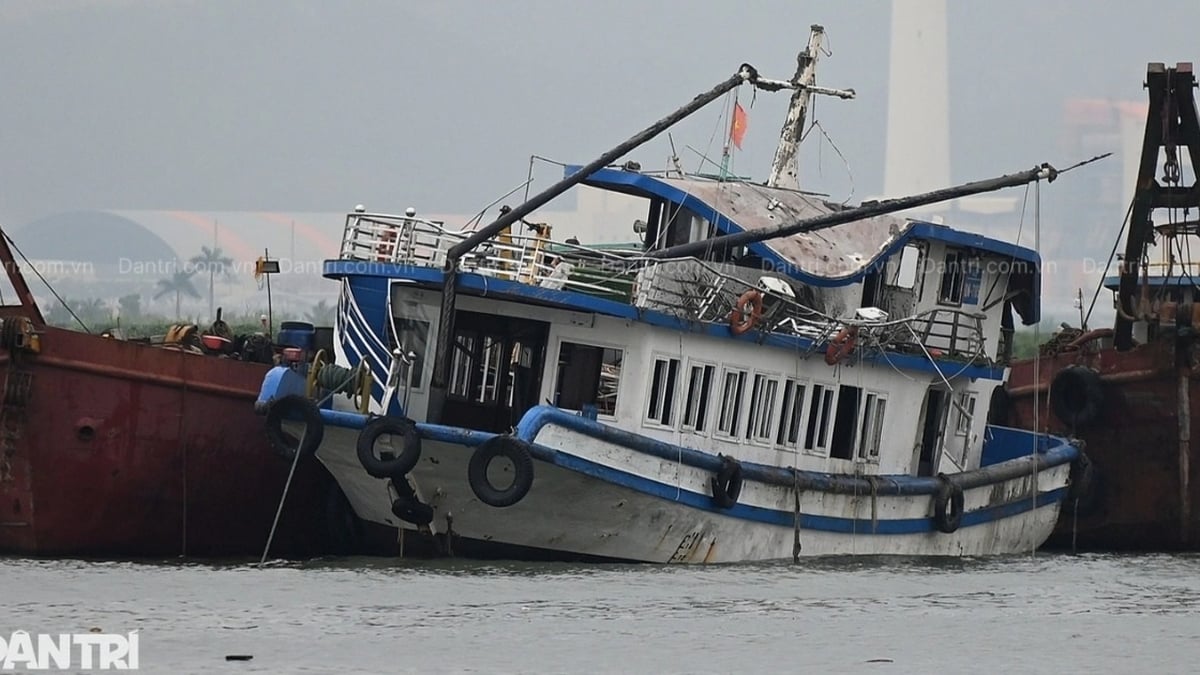

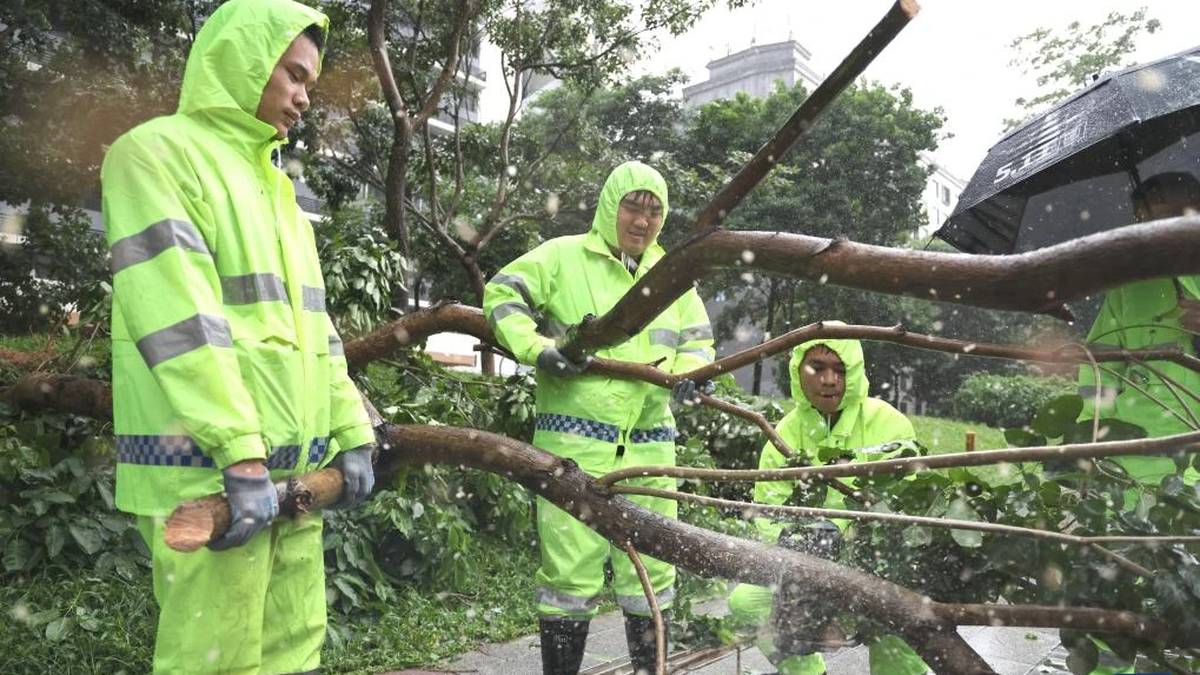


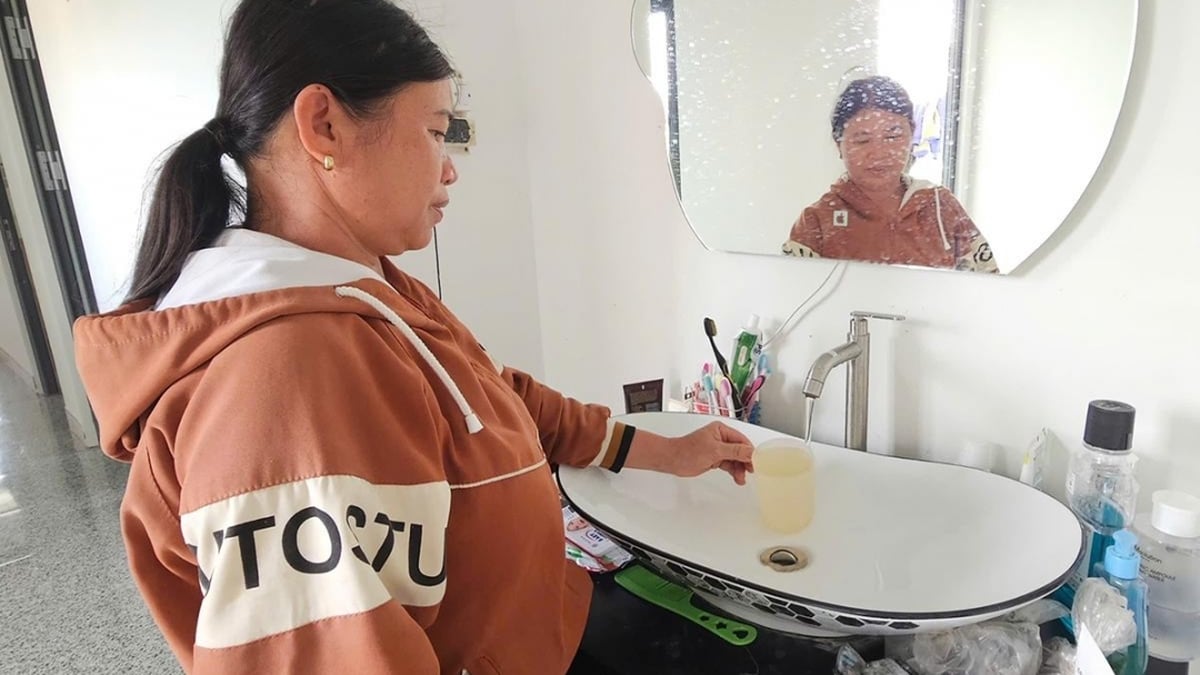


















![[Photo] National Assembly Chairman Tran Thanh Man visits Vietnamese Heroic Mother Ta Thi Tran](https://vphoto.vietnam.vn/thumb/1200x675/vietnam/resource/IMAGE/2025/7/20/765c0bd057dd44ad83ab89fe0255b783)





























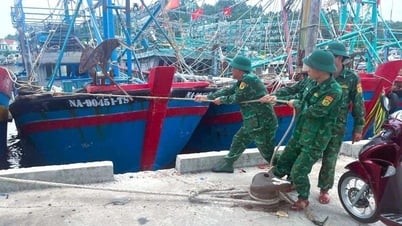
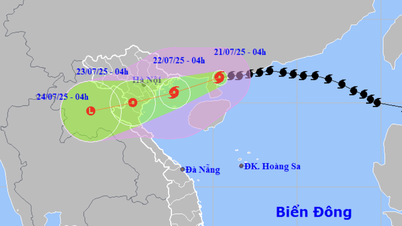
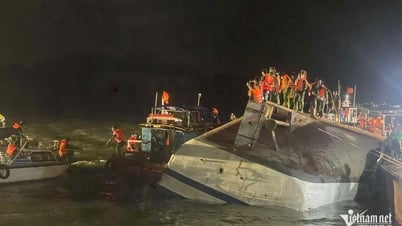

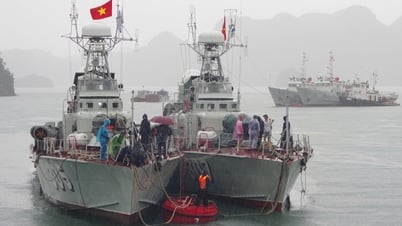

































Comment (0)